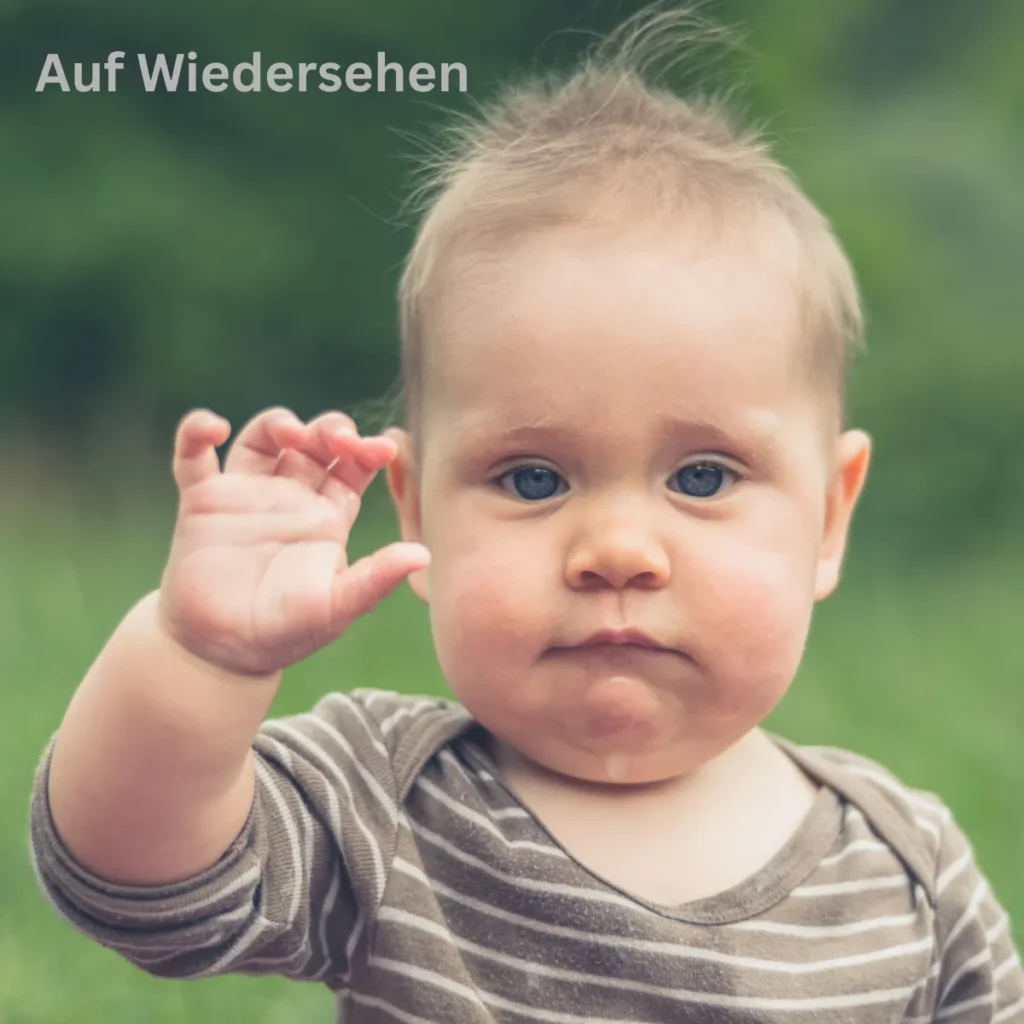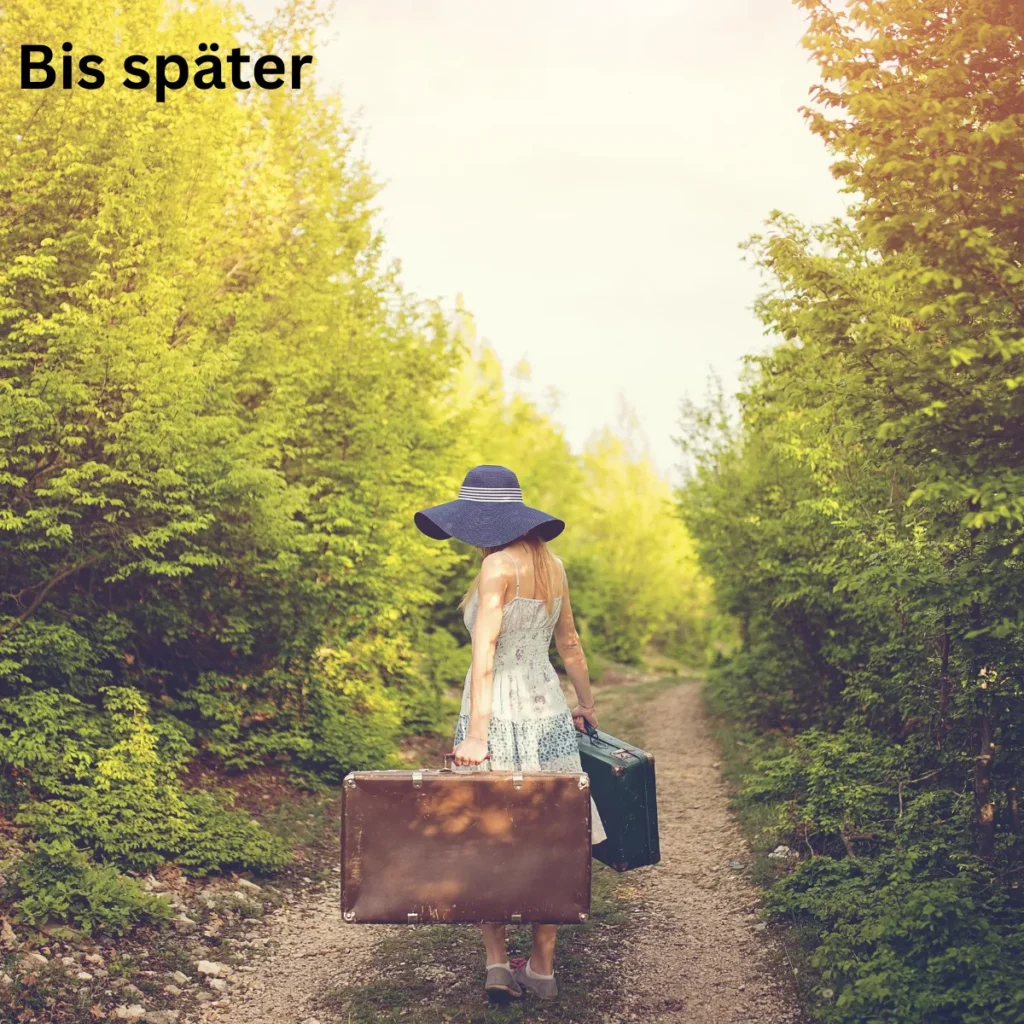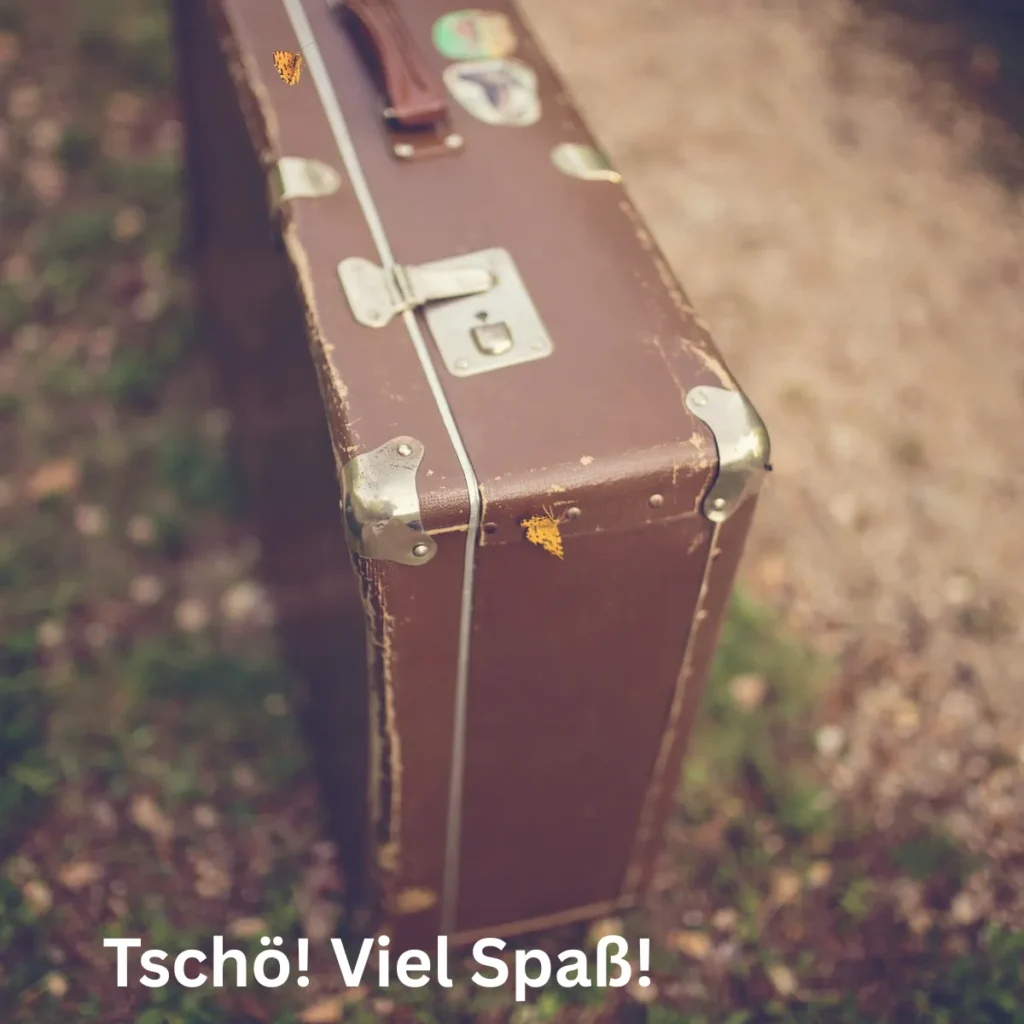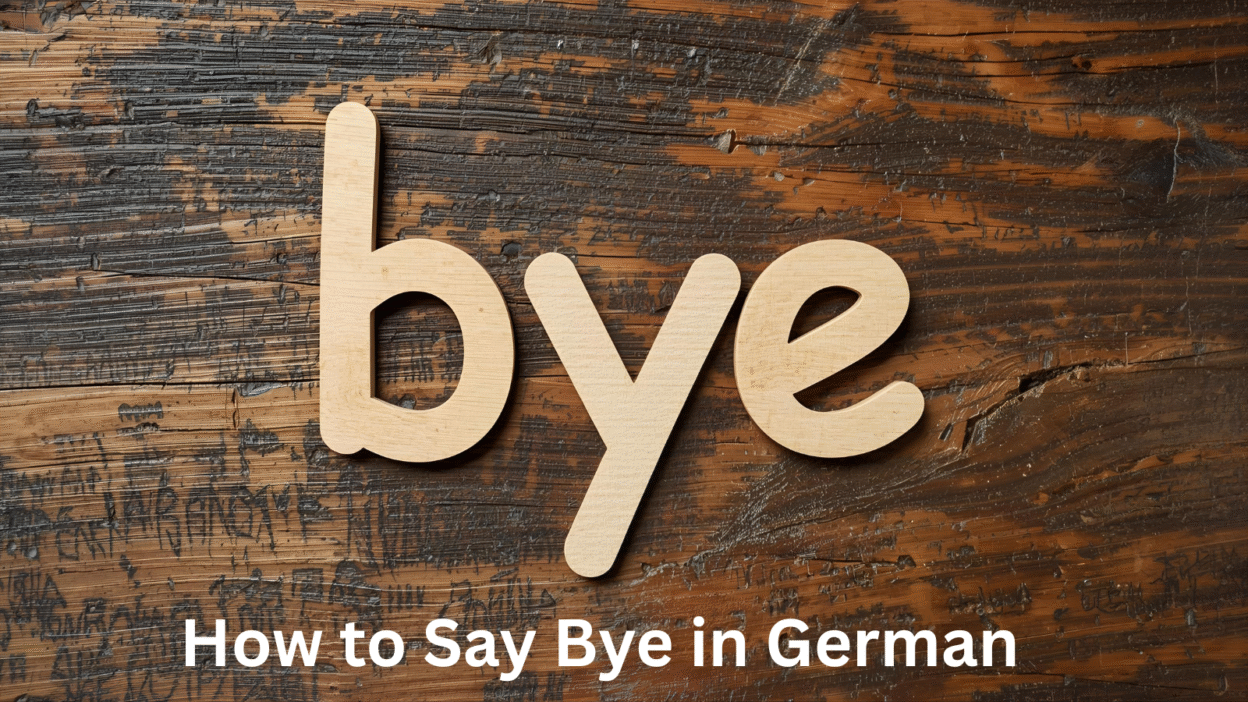How to Say Bye in German is one of the first things you’ll want to learn for everyday conversations. Just like in English, there are formal and casual ways to say goodbye, depending on the situation.
You can explore expressions for daily use, polite interactions, or casual chats. It’s also helpful to know how to say bye in German slang for informal settings and how to say bye in German to a friend, so you always sound natural and appropriate.
Say Bye in German Pronunciation
15 Ways to Say Bye in German Phrases
| # | German Phrase | English Meaning / Usage |
|---|---|---|
| 1 | Auf Wiedersehen | Goodbye (formal) |
| 2 | Tschüss | Bye (common, casual) |
| 3 | Tschüßi | Bye-bye (cute, informal) |
| 4 | Ciao | Bye (borrowed from Italian, casual) |
| 5 | Servus | Bye (informal, used in southern Germany/Austria) |
| 6 | Ade | Bye (regional, southern Germany/Switzerland) |
| 7 | Mach’s gut | Take care / Bye (casual, to friends) |
| 8 | Bis bald | See you soon |
| 9 | Bis später | See you later |
| 10 | Bis morgen | See you tomorrow |
| 11 | Wir sehen uns | We’ll see each other / See you |
| 12 | Schönen Tag noch | Have a nice day (polite farewell) |
| 13 | Leb wohl | Farewell (formal, poetic, less common today) |
| 14 | Hau rein | Bye / Take it easy (slang, very informal) |
| 15 | Man sieht sich | See ya / Catch you later (casual) |
Let’s explore 15 authentic ways to say bye in German, with real-world examples and a glimpse into how each phrase came to be.
1. Auf Wiedersehen (Goodbye)

Origin:
Literally means “until we see each other again.” It’s the traditional formal goodbye in German, dating back centuries.
Example:
👤 User A: Es war schön, Sie kennenzulernen.
👤 User B: Danke, ebenso! Auf Wiedersehen!
Use: Formal and polite; great for business, elders, or first-time meetings.
2. Tschüss (Bye)
Origin:
A casual, friendly farewell used across Germany. It likely evolved from the French “adieu” via regional dialects.
Example:
👤 User A: Ich gehe jetzt. Tschüss!
👤 User B: Tschüss! Bis später!
Use: Informal and common in daily conversations.
3. Bis später (See you later)

Origin:
Means “until later.” A time-specific farewell that shows you plan to reconnect soon.
Example:
👤 User A: Ich muss los.
👤 User B: Alles klar, bis später!
Use: Informal; used when you’ll see the person again soon.
4. Ciao (Bye – borrowed from Italian)
Origin:
Borrowed from Italian, “Ciao” became popular in German thanks to media, travel, and youth culture.
Example:
👤 User A: Ciao! Wir sehen uns morgen.
👤 User B: Ja, bis dann! Ciao!
Use: Trendy, casual, and stylish among younger speakers.
5. Bis bald (See you soon)
Origin:
Literally “until soon.” Used when you plan to meet again in the near future.
Example:
👤 User A: Ich freue mich auf unser nächstes Treffen.
👤 User B: Ich auch. Bis bald!
Use: Friendly and polite.
6. Mach’s gut (Take care)

Origin:
Short for “Mach es gut” (“Do well”), this idiom has become a heartfelt way of saying goodbye.
Example:
👤 User A: Ich fahr’ jetzt nach Hause.
👤 User B: Okay, mach’s gut!
Use: Informal; shows care and well wishes.
7. Servus (Bye – Southern Germany/Austria)
Origin:
From Latin “servus humillimus” meaning “your humble servant.” Common in Bavarian and Austrian regions.
Example:
👤 User A: Servus! Schön dich zu sehen.
👤 User B: Servus! Mach’s gut!
Use: Regional and informal.
8. Bis dann (Until then)
Origin:
A flexible goodbye, used when you have a planned meeting or time in mind.
Example:
👤 User A: Wir treffen uns um sechs, oder?
👤 User B: Ja, bis dann!
Use: Friendly and semi-casual.
9. Tschö (Bye – Western Germany)

Origin:
A regional variation of “Tschüss,” used mainly around Cologne and western areas.
Example:
👤 User A: Ich bin weg!
👤 User B: Tschö! Viel Spaß!
Use: Very casual and regional.
10. Adieu (Farewell – poetic/formal)
Origin:
Borrowed from French, “Adieu” is more dramatic or poetic, often meaning a longer goodbye.
Example:
👤 User A: Ich verlasse das Land für lange Zeit.
👤 User B: Adieu, mein Freund.
Use: Formal or dramatic; less common in everyday use.
11. Bis gleich (See you in a bit)
Origin:
Literally “until right away.” Used when you’ll see the person again very soon—within minutes or hours.
Example:
👤 User A: Ich hol nur kurz was.
👤 User B: Okay, bis gleich!
Use: Very short-term farewell; casual.
12. Man sieht sich (See you around)
Origin:
Literally “One sees each other.” Similar to the English “See ya.”
Example:
👤 User A: Ich muss weiter.
👤 User B: Kein Problem. Man sieht sich!
Use: Informal; used when there’s no fixed plan to meet again.
13. Hau rein (Take it easy / Have fun)
Origin:
Slang term meaning “go for it” or “dig in.” In farewell, it’s like saying “have a good time.”
Example:
👤 User A: Ich geh zur Party.
👤 User B: Hau rein, viel Spaß!
Use: Slang; youthful and playful.
14. Leb wohl (Farewell – emotional)
Origin:
An emotional and old-fashioned goodbye meaning “live well.” Often used when saying goodbye for a long time or forever.
Example:
👤 User A: Ich ziehe nach Australien.
👤 User B: Dann… leb wohl.
Use: Poetic, dramatic, or in emotional contexts.
15. Schönen Tag noch! (Have a nice day!)
Origin:
A modern, polite expression often used in stores, offices, or after service.
Example:
👤 User A: Danke für Ihre Hilfe.
👤 User B: Gern geschehen. Schönen Tag noch!
Use: Courteous and professional.
Conclusion:
Learning how to say bye in German helps you handle both formal and casual situations with confidence. From polite expressions to friendly slang, knowing when to use the right phrase makes your conversations smoother. Whether you’re speaking to a colleague, a stranger, or a close friend, these German goodbye phrases will make you sound natural and culturally aware.

Liam Bennett is a dedicated content writer who creates clear, engaging, and well-structured articles.
He focuses on delivering practical information that is easy for readers to understand and apply.
Liam Bennett currently writes high-quality content for repliesnest.com, ensuring clarity and reliability.



